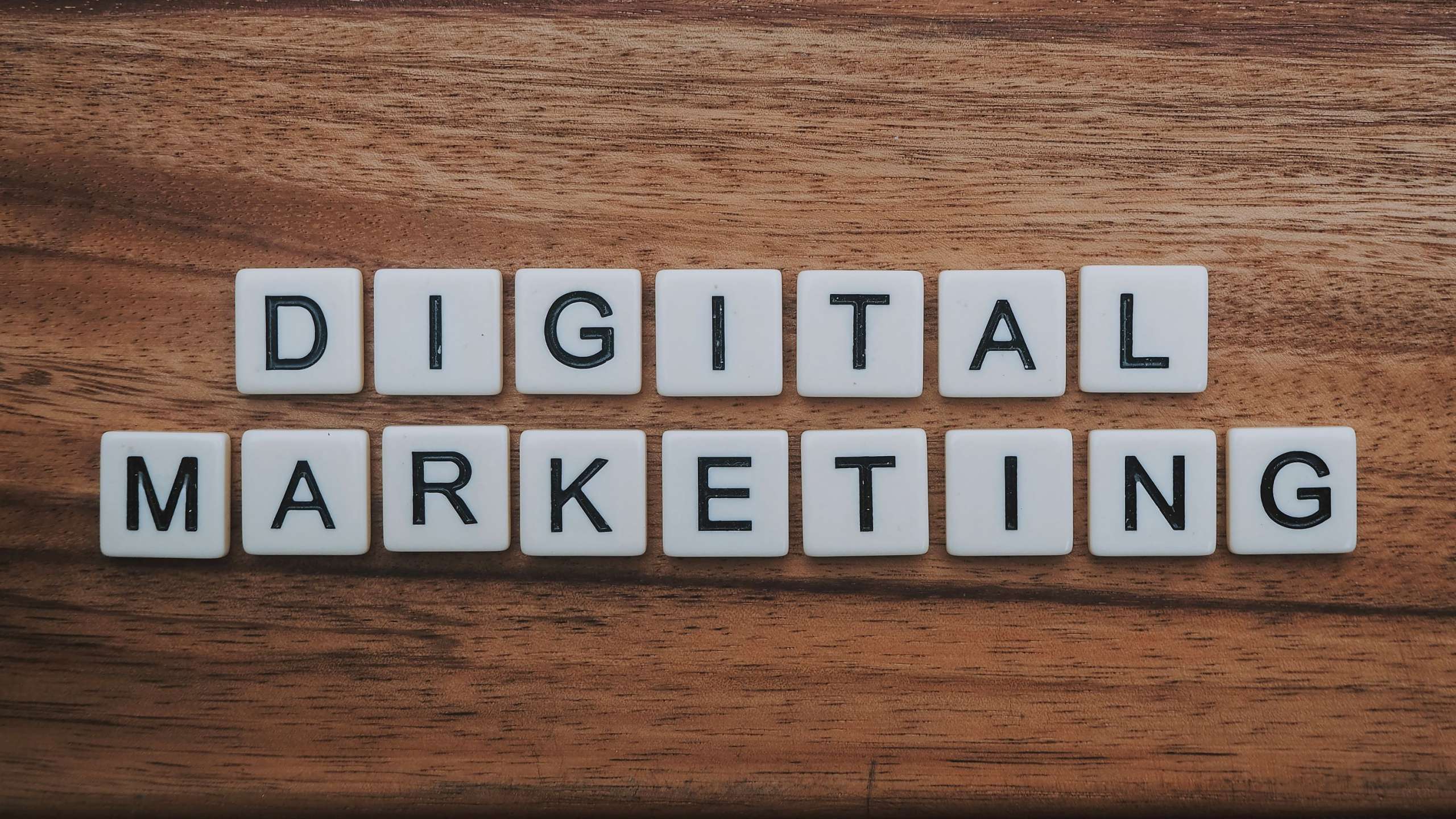Digital marketing is an incredibly broad term, so broad that many businesses tend to ask questions like “What is digital marketing?” and “how does digital marketing work?” The short answer is that digital marketing operates online instead of using analog channels like TV/newspaper ads and billboards. Using the internet like this gives businesses the power to reach much broader audience segments and allows them to precisely target specific audiences and needs. This article will serve as an overview of the digital marketing process, explaining all its aspects from start to finish, as well as how it all works.
Understanding Digital Marketing
Definition and Scope
Digital marketing is defined as the practice of promoting a brand, product, or service through various internet-based channels. Some of these channels include search engines, social media platforms, email, websites, and more. The internet plays an increasingly huge role in everyone’s lives these days, so digital marketing leverages the huge amounts of time people spend on the internet to connect with customers. This way, it’s much more cost effective, as well as more easily tracked and optimized than traditional analog marketing.
Types of Digital Marketing
There are several different digital marketing strategies, each with a unique purpose in a comprehensive marketing plan. Some of the most common include:
- Search Engine Optimization (SEO): Improving a website’s visibility on search engines to attract organic traffic.
- Pay-Per-Click (PPC) Advertising: Paid ads that appear on search engines or social media platforms, charging advertisers only when users click on them.
- Content Marketing: Creating and posting valuable content to attract and engage a target audience.
- Social Media Marketing: Using social media platforms to promote products, services, or brands and engage with customers.
- Email Marketing: Sending targeted emails to nurture leads and build customer relationships.
Each of these strategies plays a crucial role in reaching and engaging potential customers online.
Importance for Businesses
As mentioned above, the internet is a huge part of people’s lives these days, so businesses that ignore digital marketing are leaving tons of money on the table. It has several advantages, like the ability to target specific demographics, track campaign performance in real time, and adapt strategies on the fly. Digital marketing for ecommerce also democratizes these impactful, cost-effective strategies, so small businesses and large corporations alike can compete on an even playing field.
The Digital Marketing Process
Research and Planning
Thorough research and planning lay the foundation that the rest of the digital marketing process builds upon. You need to gain an understanding of your target audience, analyze your competitors, and determine which channels will be most effective to reach your audience. You should also be setting clear, measurable objectives. Doing so gives you a well-defined plan that will guide your efforts and make sure all your campaign aspects are aligned.
Strategy Development
With a clear understanding of your goals and audience, you can use it to develop a comprehensive digital marketing strategy. This strategy should include multiple channels, such as SEO, PPC, content marketing, and social media marketing, to create a cohesive, multi-disciplined plan. For example, you might use SEO to attract organic traffic to your website, PPC to target high-intent users, and content marketing to keep your audience engaged and educated. All these channels should be working together to support your overall objective.
Implementation
Once you’ve developed a strategy, it’s time to execute it. This involves creating content, launching PPC campaigns, optimizing your website for search engines, and managing social media profiles. Different approaches should be taken with each channel, but they need to all work together to drive traffic, engage users, and convert leads into customers. This is where your strategy comes to life, so you need to monitor progress closely to keep everything running smoothly.
Monitoring and Optimization
The biggest advantage of digital marketing is the ability to track and measure performance in real-time. By monitoring key metrics like website traffic, click-through rates, and conversion rates, you can gain valuable insights into what’s working and what’s not. You can then use this data to inform decisions and optimize your campaigns for better results. For instance, if a particular PPC ad isn’t performing as expected, you can change the targeting or creative to improve its effectiveness. Continuous monitoring and optimization play a huge role in maximizing the return on investment (ROI) of your digital marketing efforts.
Key Components of Digital Marketing
Search Engine Optimization (SEO)
SEO is one of the most common digital marketing strategies, and usually the first thing people think of when they hear “digital marketing”. It involves optimizing your website’s content and structure, so it appears earlier in search results on search engines like Google. With a higher search result ranking, you can attract more organic traffic to your site, which tends to cost much less than paid advertising. SEO is a continuous strategy with huge long-term benefits. It includes things like keyword research, content creation, and technical optimization.
Pay-Per-Click (PPC) Advertising
PPC advertising lets you place ads in places like search engines, social media platforms, and other websites. Just like the name states, you’re only charged when someone clicks on the ad. This is a far cry from traditional advertising, where you pay a fixed amount for exposure. PPC campaigns can be highly targeted, allowing you to focus on specific demographics, locations, and even user behaviors. This makes it an incredibly efficient way to reach potential customers, since you can target people who are actively searching for products or services like yours.
Content Marketing
Content marketing is all about creating valuable, relevant, and consistent content to attract and engage your target audience. This can include blog posts, videos, infographics, and more. You want to provide information that helps your audience solve problems or learn something new, so they see your brand as a trusted authority in your industry. Over time, content marketing can drive huge amounts of traffic to your website and generate leads that convert into customers.
Social Media Marketing
Social media platforms like Facebook, Instagram, and Twitter give you unique opportunities to connect with your audience on a more personal level. Social media marketing involves creating and sharing content, running ads, and interacting with followers to build brand awareness and foster customer loyalty. It’s also a powerful tool for driving traffic to your website and generating leads. Keep in mind that there are several social media platforms, and each has their own specific strengths and weaknesses.
Email Marketing
Email marketing was one of the first digital marketing channels to exist and remains one of the most effective to this day. It’s particularly great at nurturing leads and building long-term customer relationships. When you’re sending targeted emails to your subscribers, you can keep them informed about new products, promotions, and other updates. You want to segment your audience and personalize the emails to each segment, so you can deliver relevant content that resonates with each recipient.
Benefits of Digital Marketing
Measurable Results
As mentioned above, tracking is digital marketing’s greatest strength, and that extends to recording measurable results. Using tools like Google Analytics, you can see exactly how your campaigns are performing, from the number of website visitors to the conversion rate of your PPC ads. This kind of data lets you see the impact your digital marketing strategies are having in real time.
Cost-Effectiveness
Digital marketing tends to be more affordable than traditional marketing methods, so it’s more accessible to businesses of all sizes. There are tons of options when it comes to digital marketing that work for small businesses and huge companies alike. The measurable results mentioned above also mean you can see your ROI in real time, so you can make it more cost-efficient by tailoring your budget to what’s working and what’s not.
Global Reach
Traditional marketing is often limited by geography, while digital marketing isn’t. This gives businesses tons of new opportunities to expand their customer base and enter new markets.
The Importance of Digital Marketing
Digital marketing is a powerful tool for businesses looking to grow and succeed in today’s digital age. With an understanding of the digital marketing process—from research and planning to strategy development, implementation, and optimization—you can create effective campaigns that reach much further than traditional advertising. There are tons of digital marketing opportunities for everybody to connect with their audience, build their brand, and achieve their business goals, from marketing newbies to seasoned veterans.





